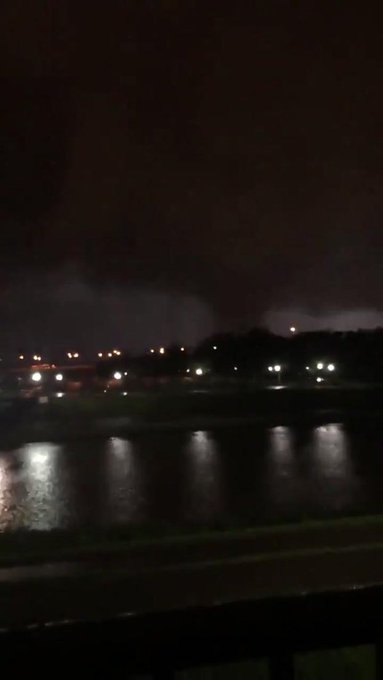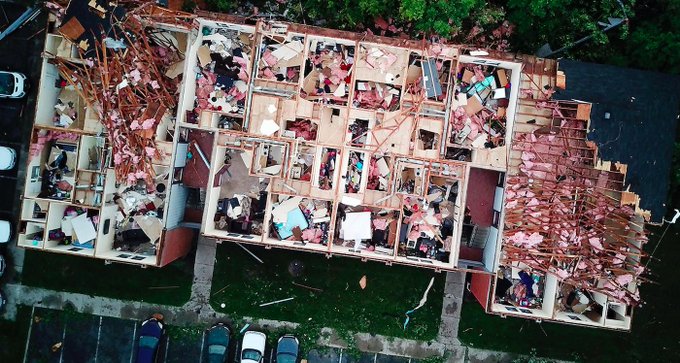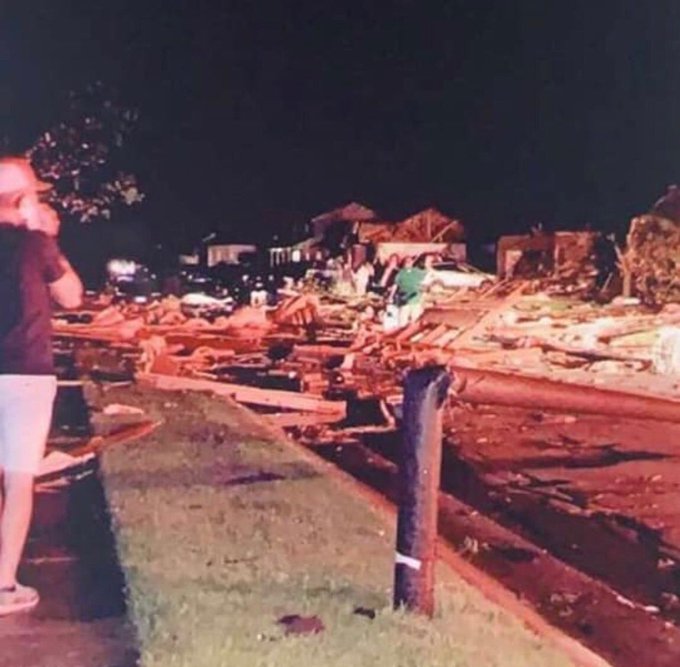There have been some pretty rowdy tornadoes the past week or so. It's made a LOT worse by them happening at night when people aren't watching TV, listening to the radio, or might sleep through the sirens. A handful of people died in MO and I'm surprised that there was only one fatality in OH reported so far.
Get alertsMost modern cell phones and carriers support Wireless Emergency Alert (WEA) messages. These make noise like an emergency alert on TV, vibrate your phone, and give a short text description of the emergency. Make sure that you have them turned on. On iPhone, settings are in Settings -> Notifications at the very bottom under "Government Alerts". Last time I had an Android I think they were under message settings.
Have a weather radio. Have several radios. Have radios that run on batteries, if the power goes out and it needs AC mains to run, you won't get the alerts. Make sure the batteries are good, if the batteries are dead, you won't get the alerts. At home I have a C. Crane CCRadio 2E and Midland radios that both get weather alerts and one of my 2M VHF radios will respond to weather alerts, at the office we have a programmable GormanRedlich weather radio.
Follow the instructions in the alerts. If it says that there's a tornado in your area and they say to get to shelter... get to shelter.
stay in touchI was too tired to try and find an amateur repeater for local traffic when the Ohio tornadoes were going through last night, but I got a scanner alert and listened to that. The radio ops were doing a good job, especially for such a wide area and interagency cooperation, but it was still a giant cluster. However, as it was happening, nobody knew what was going on, where gas was shut off and where it wasn't, where downed lines were hot and where they weren't, where people were trapped and where they'd all been evacuated from. They couldn't even figure out which streets were blocked by their own cruisers and fire apparatus to get to/from at least one injury call. They even had to manage department of transportation traffic because they had to use snow plows to clear road debris.
In a big emergency, they probably aren't going to be too keen to screw around checking to see if your people in particular are OK. Have a plan to contact each other, have a Plan B as backup, and be ready to use Plan C when Plans A and B go to hell.
Cell phone calls might not work as the towers get jammed up with people trying to call, if the towers are even still up and powered at all. Try sending text messages, they might not get through right away, but they should work their way through as congestion allows. Try using non-cellular messaging like iMessage, Signal, WhatsApp, etc. if wifi is available but not cell signal. If you have internet but no phone, try social media, but be ready for a high signal/noise ratio crapfest there too. During the Ohio tornadoes last night the relevant twitter hash tags had a few people relaying information and checking on people, but most of it was BS thoughts-and-prayers and vultures trying to capitalize on the event. Monitor official sources on social, but use DMs for direct communication without the SNR.
There was NWS spotter activation for the tornado, but the only guy on sounded like NOAA personnell reading the incoming alerts off the wire. If you can listen (and give more info), amateur radio can be very valuable during emergencies for getting information about what is going on but also for staying in touch with family/friends to check on them, arrange a meeting place, etc.
Stay safe















